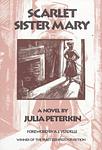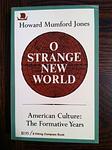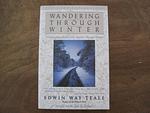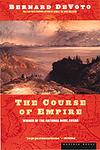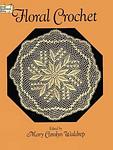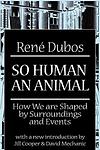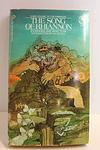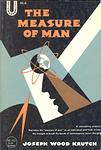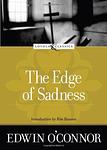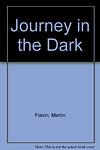The Greatest Books of All Time
Click to learn how this list is calculated.
This list represents a comprehensive and trusted collection of the greatest books. Developed through a specialized algorithm, it brings together 305 'best of' book lists to form a definitive guide to the world's most acclaimed books. For those interested in how these books are chosen, additional details can be found on the rankings page.
Genres
Countries
Date Range
Reading Statistics
Click the button below to see how many of these books you've read!
Download
If you're interested in downloading this list as a CSV file for use in a spreadsheet application, you can easily do so by clicking the button below. Please note that to ensure a manageable file size and faster download, the CSV will include details for only the first 500 books.
Download-
10176. Scarlet Sister Mary by Julia Peterkin
This novel is a powerful portrayal of the life of an African American woman named Mary, who grows up in a religious community in the South during the early 20th century. Mary, who is initially a devout follower of her faith, is led astray by her desires and ends up bearing many children out of wedlock. Her community ostracizes her for her transgressions and she must find a way to survive and care for her children on her own. The story explores themes of faith, sin, redemption, and resilience in the face of adversity.
-
10177. O Strange New World by Howard Mumford Jones
"O Strange New World" is a historical account that explores the intellectual and cultural development of America from the time of the first settlers to the early 19th century. The author examines how the settlers' ideas of freedom, individualism, and progress were shaped by their experiences and the unique challenges they faced in the New World. The book provides a comprehensive understanding of the origins and evolution of American thought and values.
-
10178. Wandering Through Winter by Edwin Way Teale
"Wandering Through Winter" is a travelogue in which the author and his wife journey 20,000 miles across America from the southwestern deserts to the northeastern forests, exploring the beauty of nature during the winter months. The book, fourth in a series on the American seasons, combines scientific explanations with poetic descriptions of the landscapes, wildlife, and natural phenomena they encounter, capturing the quiet but profound transformations that occur in the natural world during winter.
-
10179. The Problem of Slavery in Western Culture by David Brion Davis
"The Problem of Slavery in Western Culture" is a comprehensive historical analysis of the cultural, moral, and intellectual dilemmas slavery posed to Western society. The book explores the paradox of a freedom-loving society that also allowed and justified human bondage, tracing the evolution of thought on slavery from ancient times to the late eighteenth century. It delves into the ways in which different societies have rationalized and confronted slavery, including religious, philosophical, and political perspectives, ultimately leading to the abolitionist movements.
-
10180. The Course of Empire by Bernard A. DeVoto
"The Course of Empire" is a comprehensive historical narrative that explores the westward expansion of the United States from 1800 to 1848. The book delves into the politics, economics, and social dynamics that led to the exploration, settlement, and ultimately the transformation of the American West. It highlights the roles of key figures, the impact of the fur trade, the Gold Rush, and the Oregon Trail, and the indigenous cultures that were displaced during this period.
-
10181. Advise and Consent by Allen Drury
This political novel delves into the world of U.S. Senate politics. The plot revolves around the contentious confirmation process of a controversial Secretary of State nominee, who is suspected of having communist sympathies. As the Senate battles over the nomination, the novel reveals the complex web of political maneuvering, personal secrets, and power struggles among the country's leaders. The story provides an insightful exploration of American politics, ethics, and the consequences of past actions.
-
10182. Early Autumn by Louis Bromfield
"Early Autumn" is a Pulitzer Prize-winning novel that explores the life of a New England matriarch, her disintegrating, aristocratic family and a young girl who moves in with them. The story delves into the family's struggle to maintain their fading glory and the young girl's transformation under the guidance of the matriarch. The novel is a critique of the American Dream and the social changes in the United States during the early 20th century.
-
10183. Alice Adams by Booth Tarkington
Set in the early 20th century, the novel is about a young woman, Alice Adams, who aspires to climb the social ladder in her small town. She is hindered by her family's low social status and poor finances. Despite her attempts to fit in with the upper-class society, her efforts often lead to awkward and embarrassing situations. The story is a poignant exploration of ambition, societal pressure, and the struggle for acceptance.
-
10184. So Human an Animal by René Dubos
"So Human an Animal" is a Pulitzer Prize-winning work that explores the complex relationship between the environment and human health. The book argues that the rapid technological advancements and urbanization of the 20th century have negatively impacted human health and happiness. The author suggests that a return to a more natural way of living and a reconnection with nature could help to alleviate these issues. The book is a call to action, urging society to consider the impact of its actions on the environment and human well-being.
-
10185. Here Gather the Stars by Clifford D. Simak
In "Here Gather the Stars," a science fiction novel, the protagonist is a space-faring trader who comes across an ancient, abandoned alien library that holds the knowledge of countless civilizations. As he delves into the library's secrets, he discovers that it offers not only advanced technology but also profound philosophical insights. The novel explores themes of isolation, the importance of knowledge, and humanity's place in the cosmos, as the protagonist grapples with the implications of this newfound wisdom and the moral dilemmas it presents, ultimately questioning what it means to be human in an infinite universe.
-
10186. The Hollow Hills by Mary Stewart
"The Hollow Hills" is the second book in Mary Stewart's Arthurian Saga. The story follows Merlin, the wizard, as he helps Arthur claim his rightful place as King of Britain. Merlin must navigate treacherous political alliances and supernatural forces as he guides Arthur towards his destiny. Along the way, Merlin discovers secrets about his own past and must confront his own fears and doubts. The novel is a thrilling adventure full of magic, romance, and intrigue set against the backdrop of ancient Britain.
-
10187. The Song of Rhiannon by Evangeline Walton
"The Song of Rhiannon" is a re-telling of the Welsh mythological tale of the Mabinogion. The story follows the beautiful and mysterious Rhiannon, who is accused of murdering her own child and is forced to endure punishment and humiliation. However, with the help of her loyal husband and the powerful magic of the Otherworld, Rhiannon is able to clear her name and reclaim her rightful place as a queen. The novel explores themes of love, betrayal, and the power of the supernatural, all set against the backdrop of ancient Wales.
-
10188. Shadow Over Mars by Leigh Brackett
Set on a colonized Mars, the story unfolds in a future where the planet is ruled by a tyrannical government and the powerful Inner Planets corporation. The protagonist, a rugged individualist and outlaw, becomes embroiled in a rebellion against the oppressive regime. As he navigates the complex political landscape, he encounters a diverse cast of characters, including a mysterious woman with her own agenda. The narrative combines elements of science fiction and noir, exploring themes of freedom, power, and the human spirit's resilience against authoritarian control.
-
10189. The Big Time by Fritz Leiber
"The Big Time" is a science fiction novel that delves into the concept of a temporal war, where two factions, the Spiders and the Snakes, battle across history to shape the future to their design. The story unfolds in a rest-and-recreation station outside of normal time and space, known as The Place, where soldiers from different eras are recruited to fight in this endless conflict. The narrative is driven by the personal experiences and interactions of these soldiers, particularly focusing on the perspective of Greta, an entertainer at The Place, as they grapple with the implications of their existence outside of time and the moral complexities of their roles in the war. The novel explores themes of identity, causality, and the nature of conflict, all within the confines of a tightly controlled setting that challenges the very notion of reality.
-
10190. The Measure of Man by Joseph Wood Krutch
"The Measure of Man" is a philosophical exploration of human nature and the human condition. It delves into the profound questions about man's place in the universe, the nature of his consciousness, and his intellectual, moral, and spiritual capabilities. The book challenges readers to reflect upon the meaning of human existence, the importance of individuality, and the potential for humanity to transcend its biological limitations.
-
10191. Farmer in the Sky by Robert A. Heinlein
The book is a science fiction novel that follows the story of a teenage boy who emigrates with his family from an overcrowded Earth to Ganymede, one of Jupiter's moons, which is in the process of being terraformed into a habitable environment. The narrative explores the challenges of pioneering on a new world, including the struggle to adapt to a harsh and unfamiliar environment, the need for self-sufficiency, and the dynamics of building a new society on the frontier of space. The protagonist must navigate personal loss, the complexities of adolescence, and the responsibilities of helping to establish a new colony, all while facing the unpredictable dangers of an alien world.
-
10192. His Family by Ernest Poole
The novel follows the story of a widowed father, Roger Gale, living in New York City, as he tries to understand and connect with his three, very different, grown daughters during the early 20th century. Facing the rapidly changing society, including the rise of feminism and the shifting role of women, Gale struggles to adapt while trying to maintain the traditional values he holds dear. The story explores themes of family, generational differences, and the evolving social landscape of the time.
-
10193. Beyond This Horizon by Robert A. Heinlein
In a future society where genetic engineering has eradicated disease and the economy is managed to ensure abundance for all, the protagonist navigates a world where personal fulfillment and societal contribution are paramount. Citizens are armed and duels are a common means of settling disputes, while those who choose not to improve their genetic lineage are considered second-class. The narrative explores themes of eugenics, social structure, and the quest for meaning in a seemingly utopian existence, culminating in a revolutionary discovery that challenges the very foundations of this carefully constructed society.
-
10194. The Mule by Isaac Asimov
In this science fiction narrative, a mysterious and enigmatic figure known only as the Mule rises to power, disrupting the established order of a vast galactic empire that had been predicted to endure for thousands of years. The Mule possesses unprecedented psychic abilities, allowing him to manipulate emotions and bend individuals to his will, thus enabling him to conquer worlds and challenge the Seldon Plan—a long-term mathematical framework designed to guide humanity to a second empire. As the Mule's influence grows, a small group of protagonists embarks on a quest to understand and ultimately find a way to stop this unforeseen variable, whose very existence threatens to derail the course of human destiny as foreseen by the greatest psychohistorians of their time.
-
10195. The Edge of Sadness by Edwin O'Connor
"The Edge of Sadness" is a story about a middle-aged Catholic priest who, after battling alcoholism and depression, returns to his hometown to serve in a local parish. The novel explores themes of faith, friendship, and redemption as the protagonist reconnects with his old friends, confronts his past, and tries to rebuild his life. The story is also a reflection on the changing face of the Catholic Church and the Irish-American community in the mid-20th century.
-
10196. Years of Grace by Margaret Ayer Barnes
"Years of Grace" is a novel that follows the life of a woman named Jane Ward Carver from her adolescence in the late 19th century to her adulthood in the early 20th century. The book explores her struggles and triumphs in navigating societal expectations, love, marriage, and motherhood in a rapidly changing world. The story is set against the backdrop of significant historical events, including World War I and the Roaring Twenties, providing a rich and detailed portrait of a woman's life during this transformative era.
-
10197. Journey in the Dark by Martin Flavin
"Journey in the Dark" is a novel that follows the life of Sam Braden, a man born into poverty in Iowa who rises to wealth and power in the business world of New York. Despite his success, Sam struggles with his past, personal demons, and the corruption and greed he encounters in his journey. The story provides a critical examination of the American Dream, questioning whether success and wealth truly bring happiness and fulfillment.
-
10198. The Elected Member by Bernice Rubens
The Elected Member is a poignant and darkly humorous novel that delves into the life of a brilliant but troubled man who begins to see silverfish everywhere. His elderly father, a respected Rabbi, struggles to understand and help his son while grappling with his own guilt and the disintegration of their family. The book explores themes of mental illness, addiction, familial relationships, and the complexities of the human psyche.
-
10199. The Store by Thomas Sigismund Stribling
"The Store" is a Pulitzer Prize-winning novel that dives deep into the social and economic changes in the South during the early 20th century. The narrative follows the life of a former Confederate soldier who, after the Civil War, manages to rise from poverty and become a successful businessman. The book explores themes of racism, class struggle, and the complexities of the Southern society during the Reconstruction period, as the protagonist navigates his way through the challenges of his time.
-
10200. Something to Answer For by P. H. Newby
Set in 1956 during the Suez Crisis, the novel follows Townrow, a man who travels to Egypt after receiving a mysterious letter stating that his friend Elie has died and left him money. As he navigates through the political tensions and chaos of the time, he suffers a head injury that leaves him with an unreliable memory and perception of reality. As he tries to uncover the truth about Elie's death and his own identity, he gets caught up in the historical events unfolding around him.
Reading Statistics
Click the button below to see how many of these books you've read!
Download
If you're interested in downloading this list as a CSV file for use in a spreadsheet application, you can easily do so by clicking the button below. Please note that to ensure a manageable file size and faster download, the CSV will include details for only the first 500 books.
Download